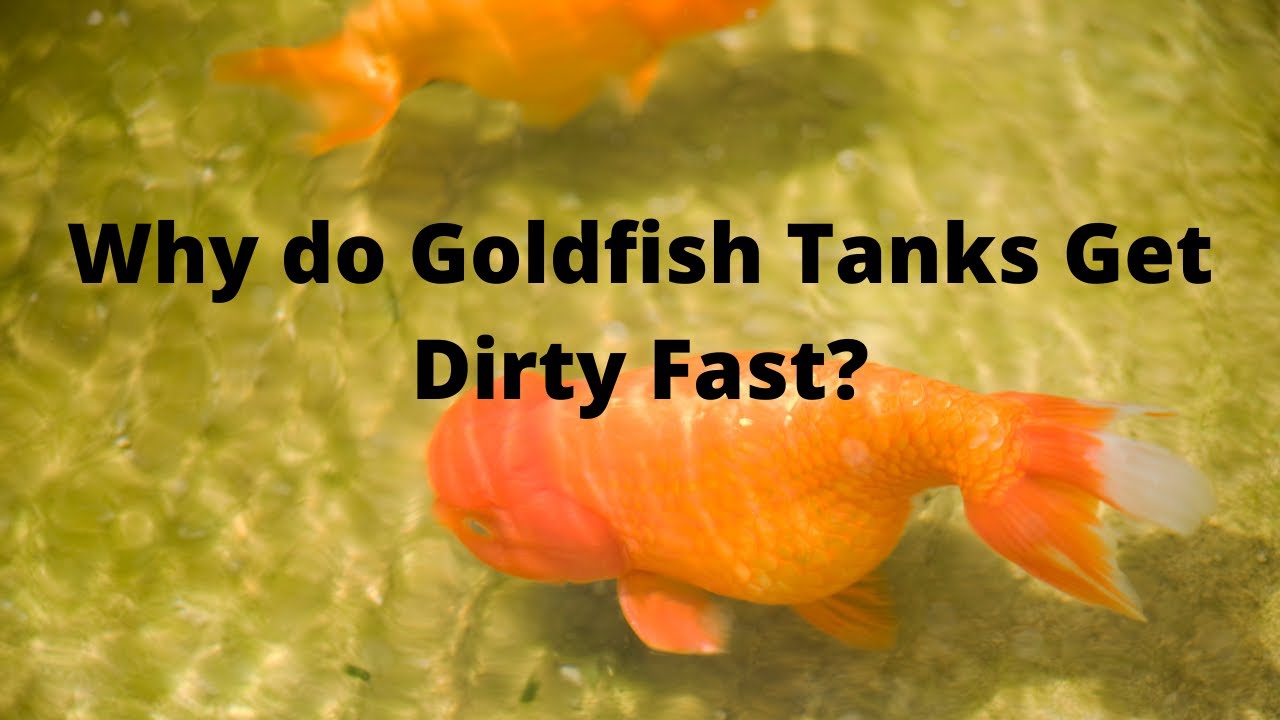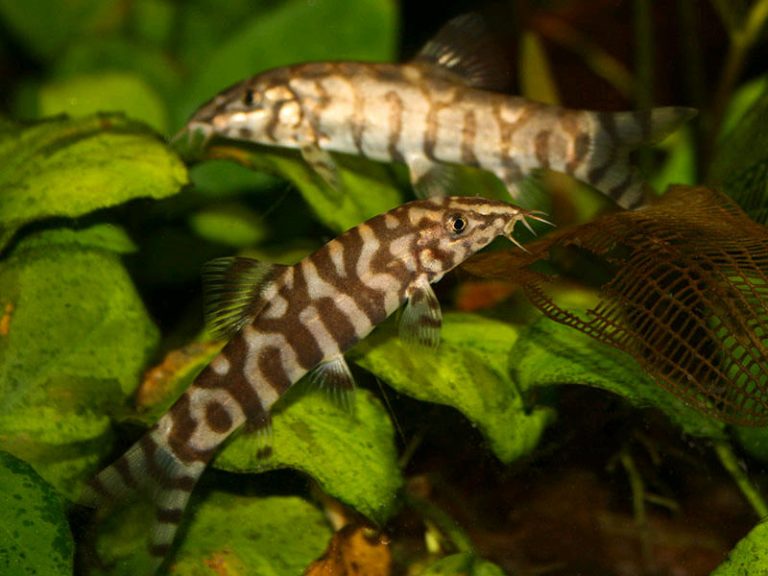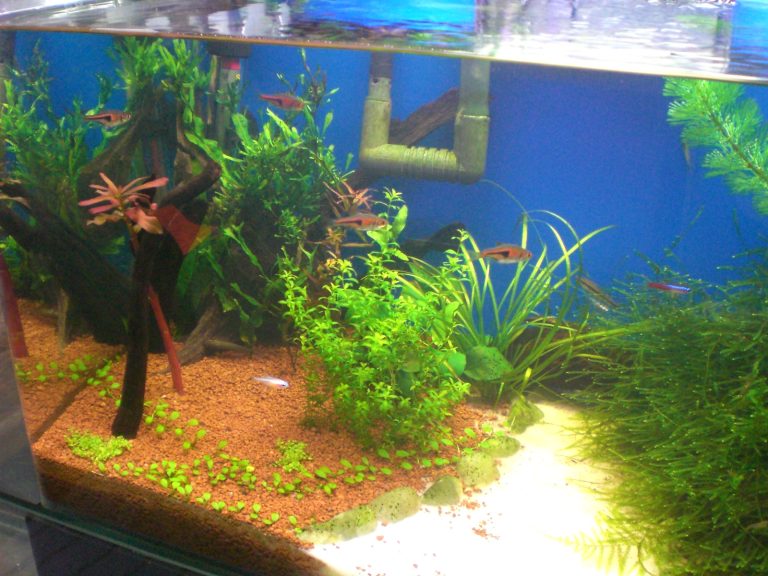Why Does My Fish Tank Get Dirty So Fast? Discover the Reasons!
Fish tanks get dirty so fast due to a buildup of fish waste, uneaten food, and bacteria growth. Keeping the tank clean is important for the health of the fish and the aesthetics of the tank.
A dirty fish tank can be caused by several factors, including overfeeding, poor filtration, infrequent water changes, and overcrowding. These factors can lead to an increase in toxins, harmful ammonia levels, and cloudy water. To prevent a dirty fish tank, it is essential to maintain a regular cleaning schedule and monitor the water parameters frequently.
By doing so, you can keep your fish healthy and your tank looking its best.

Credit: aquariumlabs.water.blog
Understanding The Causes Of Dirty Fish Tanks
Keeping a fish tank clean can be challenging, especially when it seems to get dirty so quickly. Many factors contribute to this problem, ranging from overfeeding to inadequate filtration. In this section, we will discuss the causes of dirty fish tanks and provide solutions to keep your aquarium clean and healthy.
Importance Of Fish Tank Cleanliness
Maintaining a clean fish tank is critical for the health of your aquatic pets. Dirty water can impact fish health in several ways, including:
- Increase in ph levels or ammonia/nitrite levels, causing stress and illness in fish
- Formation of algae, which can compete with fish for oxygen and nutrients
- Accumulation of organic waste, leading to bacterial growth and poor water quality
To ensure your fish thrive, you must regularly clean your tank and take appropriate measures to prevent water pollution.
Overfeeding
Overfeeding is one of the most common causes of dirty fish tanks. When food remains uneaten, it breaks down and produces excess waste that settles on the tank’s bottom. Moreover, uneaten food can be a breeding ground for bacteria, which can harm the fish.
To avoid overfeeding:
- Feed your fish the amount they can eat in two minutes; any surplus will only pollute the water
- Use a feeding schedule to ensure the fish consume their food before it starts to decay
- Invest in automatic fish feeders that deliver the right food portions
Lack Of Filtration
Without proper filtration, waste products accumulate quickly, creating an unhealthy environment for fish. A filter removes water impurities and circulates the water in the tank, preventing stagnation.
To ensure adequate filtration:
- Invest in an adequate filter that suits your tank size and the number of fish it houses
- Follow the manufacturer’s recommendations to prevent filter clogs, which can reduce the filter’s efficiency or stop it from working entirely
- Clean your filter media regularly to avoid waste build-up
Overcrowding
Fish overcrowding is another cause of dirty fish tanks. Too many fish in a small space can create an excessive amount of waste and pollutants, even with adequate filtration. Additionally, fish that are stressed due to overcrowding may be more vulnerable to disease.
To address overcrowding:
- Research the ideal size of fish for your tank and the number you can safely keep
- Avoid impulse purchases; plan how many fish your tank can accommodate and the size they will grow to
- Consider rehoming excess fish or investing in a larger tank.
Water Change Schedule
Regular water changes are necessary to maintain a healthy environment for your fish. Infrequent or inadequate water changes can cause a build-up of pollutants, leading to dirty water.
To ensure adequate water changes:
- Follow a regular water change schedule to prevent the build-up of pollutants
- Change at least 10% of the tank’s water weekly
- Use a water conditioner to remove chlorine and chloramine before refilling the tank
Maintaining a clean and healthy fish tank requires effort and regular maintenance. By addressing the root causes of dirty water, such as overfeeding, lack of filtration, overcrowding, and inadequate water changes, you can keep your aquatic pets healthy and thriving.
The Impact Of Overfeeding
The Role Of Overfeeding In Dirty Fish Tanks
Overfeeding can lead to excessive biological waste in the fish tank, resulting in a cloudy and dirty environment. Here are some of the key points to consider about the role of overfeeding in dirty fish tanks:
- Overfeeding is one of the most common reasons for dirty fish tanks, as it leads to excess food particles and waste in the aquarium.
- Fish tend to eat whatever food is available, irrespective of the quantity, which means overfeeding can happen without you realizing it.
- The excess food particles break down into waste and create ammonia, nitrites, and nitrates, which over time impact water quality.
- Overfeeding also leads to uneaten food that settles at the bottom, rotting and contributing to dirt and filth in the aquarium.
- Dirty fish tanks can also lead to poor fish health, as the water quality affects their immunity and well-being.
The Science Behind Overfeeding And How It Affects Water Quality
Overfeeding can significantly impact water quality in your fish tank, as it leads to a surplus of biological waste. Here are some points to consider about the science behind overfeeding and water quality:
- Fish produce waste in the form of ammonia, which is broken down by beneficial bacteria in the aquarium into nitrite and then nitrate.
- Nitrate is a less toxic form of waste, but excessive levels can still harm fish health and lead to dirty water.
- Overfeeding leads to a surplus of waste, which the beneficial bacteria may not be able to handle.
- This results in an increase in ammonia and nitrate levels, leading to poor water quality and a dirty fish tank.
- As the quality of water deteriorates, fish become stressed and more susceptible to diseases and infections.
Overfeeding is a key contributor to dirty fish tanks and poor water quality. Regular feeding, in the right quantity, and efficient cleaning can help control the levels of waste and maintain a healthy and clean fish tank environment.
The Importance Of Proper Filtration
Fishkeeping can be both rewarding and challenging. One common issue that aquarium owners face is the rapid buildup of dirt in their fish tank, no matter how often they clean it. If you’re one of them, then you may be wondering why your fish tank gets dirty so fast.
Well, the answer is simple: lack of proper filtration. We’ll dive deeper into this topic to understand the importance of proper filtration in keeping your fish tank clean and healthy.
The Benefits Of Using A Good Filtration System
A good filtration system is a vital component in maintaining the water quality of your fish tank. Here are some of the benefits of using a good filtration system:
- Removes waste and debris: A filtration system removes fish waste, uneaten food, and other debris from the water, preventing it from accumulating on the bottom of the tank and turning into harmful toxins for the fish.
- Promotes good bacteria growth: A good filtration system creates a healthy environment for beneficial bacteria to grow, which helps in breaking down the harmful chemicals produced by fish waste and uneaten food.
- Maintains oxygen levels: A filtration system increases oxygen levels in the tank, which is essential for the fish to breathe and for the growth of good bacteria.
The Downside Of Using The Wrong Filtration System
Using the wrong filtration system or not having any filtration system at all can be detrimental to your fish tank’s cleanliness and health. Here are some of the downsides of using the wrong filtration system:
- Fish illness and death: Poor water quality due to a lack of proper filtration can cause stress and illness in fish, leading to death.
- Cloudy water: An ineffective filtration system can allow debris and waste to accumulate, causing cloudy water that is not only unsightly but also potentially harmful to the fish.
- Poor water circulation: The wrong filtration system can result in poor water circulation, leading to stagnant areas where debris and waste can accumulate.
The importance of proper filtration cannot be stressed enough when it comes to keeping your fish tank clean and healthy. With a good filtration system in place, you can ensure that your fish thrive in a clean and safe environment.
So, invest in a good filtration system today and watch as your fish tank stays clear and your fish thrive!
The Negative Effects Of Overstocking
Why Does My Fish Tank Get Dirty So Fast
Are you constantly cleaning your fish tank, only to find that it gets dirty again in just a matter of days? There could be a number of reasons for this, but one of the most common culprits is overstocking. In this blog post, we’ll explore the negative effects of having too many fish in your tank and provide some tips on avoiding overstocking.
How Too Many Fish Can Cause A Dirty Fish Tank
When there are too many fish in your tank, it can lead to a number of problems, including:
- Increased waste production: More fish means more waste, and if this waste isn’t properly filtered out of your tank, it can accumulate and cause dirty water.
- Reduced oxygen levels: Fish require oxygen to survive, and having too many fish in your tank can lead to a reduction in oxygen levels. This can cause your fish to become stressed and more susceptible to diseases.
- Aggressive behavior: Overcrowding can lead to territorial disputes between fish, which can result in physical damage to the fish and the tank décor.
Tips For Avoiding Overstocking
Now that you understand the negative effects of overstocking, it’s important to learn how to avoid it. Here are some tips to help you:
- Research fish compatibility: Different types of fish have different requirements and personalities. Before adding any fish to your tank, make sure you research their compatibility with each other and with your current fish.
- Consider tank size: The size of your tank is important in determining how many fish it can safely hold. As a general rule of thumb, you should allow for one gallon of water per inch of fish.
- Monitor your fish: Keep an eye on your fish and watch for any signs of stress or disease. If you notice any problems, it may be a sign that you have too many fish in your tank.
- Don’t overfeed: Overfeeding your fish can lead to an increase in waste production, which can cause dirty water. Make sure you’re only giving your fish the amount of food they need to stay healthy.
By following these tips, you can maintain a healthy and clean fish tank for your aquatic pets. Remember, overstocking is just one of the potential causes of a dirty fish tank, so be sure to consider other factors such as filtration, water quality, and tank maintenance.
The Role Of Decorations And Plants
The Impact Of Plants And Decorations On Water Quality
Fish tanks can accumulate debris quickly, and various factors contribute to this issue. One of the significant factors that impact water quality in fish tanks is the decorations and plants. Here’s how:
- Fish waste and uneaten food particles can get trapped in the decorations or plants, contributing to debris build-up and poor water quality.
- Without proper maintenance, decorations and plants can become breeding grounds for harmful bacteria, leading to further degradation of water quality.
- Some materials used in decorations, such as plastic or painted items, may release toxins into the water over time, polluting the fish tank.
Tips For Choosing Fish Tank Decorations That Won’T Contribute To Dirty Water
Decorating a fish tank can be a fun and creative activity, but it’s essential to choose the right decorations that won’t harm your aquatic pets’ environment. Here are some tips for choosing fish tank decorations that won’t contribute to dirty water:
- Use natural materials such as rocks, driftwood, and live plants as they help to maintain water quality by absorbing harmful chemicals and providing a surface that beneficial bacteria can grow on.
- Avoid using small plastic or painted decorations that can chip or flake and cause harm to your fish.
- Ensure that the decorations can be easily cleaned and do not trap debris. Smooth surfaced decorations like rocks or shells can be easily cleaned, while rough surfaces may require scrubbing, leading to the release of debris and toxins into the water.
- Keep in mind your fish’s species and environmental requirements while selecting decorations. Some fish prefer hiding places, while others need open swimming spaces.
Decorating your fish tank can enhance its aesthetic appeal and provide a comfortable habitat for your pets. However, neglecting proper maintenance and choosing the wrong decorations can lead to dirty water and endanger the lives of your aquatic pets. Therefore, being conscious of the materials you use while decorating and regularly cleaning your fish tank is essential for maintaining a healthy and safe environment for your fish.
Frequently Asked Questions Of Why Does My Fish Tank Get Dirty So Fast
Why Does My Fish Tank Get Dirty So Fast?
Fish tanks get dirty quickly due to overfeeding, overstocking, lack of maintenance, or inadequate filtration. It could also be the result of direct or indirect sunlight exposure, high water temperatures, and using low-quality fish food.
How Often Should I Clean My Fish Tank?
Fish tanks should be cleaned once a week for better water quality. Cleaning involves removing debris, excess food, and waste, scrubbing the tank walls, and changing 10% to 15% of the water. It also helps to replace the filter every month.
Can I Use Tap Water To Fill My Fish Tank?
Tap water can be used to fill a fish tank, but make sure to let it sit for at least 24 hours to allow chlorine and other chemicals to evaporate. Alternatively, you can use a dechlorinating agent to neutralize the chemicals.
How Many Fish Can I Have In My Tank?
The maximum number of fish depends on the size of the tank and the fish species. Generally, one inch of fish per gallon of water is a safe rule of thumb. Overstocking can lead to poor water conditions, stress, and disease.
Can Sunlight Harm My Fish Tank?
Direct sunlight can cause major algae growth, temperature fluctuations, and even heat the tank water to hazardous levels. Indirect sunlight, however, can be beneficial to aquatic plants. It is recommended to place fish tanks away from windows and to use artificial lighting.
How Can I Reduce Algae In My Tank?
Algae can be reduced by controlling the tank’s lighting duration, preventing sunlight exposure, and reducing excess nutrients like phosphate and nitrate. Regular water changes, cleaning the tank regularly, and adding algae-eating fish can also keep algae in check.
Conclusion
As a fish owner, it is important to maintain a clean and healthy environment for your aquatic pets. The accumulation of dirt and debris in your fish tank can be a result of various factors, including overfeeding, lack of regular water changes, and improper filtration.
It is crucial to regularly monitor and maintain these aspects in order to avoid the accumulation of harmful bacteria and algae growth. Keeping a balanced eco-system in your fish tank can be achieved through a combination of proper feeding habits, regular maintenance, and cleaning routines.
By taking the necessary steps to maintain a clean and healthy environment for your fish, you can enjoy the serene beauty of your aquarium, while ensuring the longevity and health of your aquatic pets.





